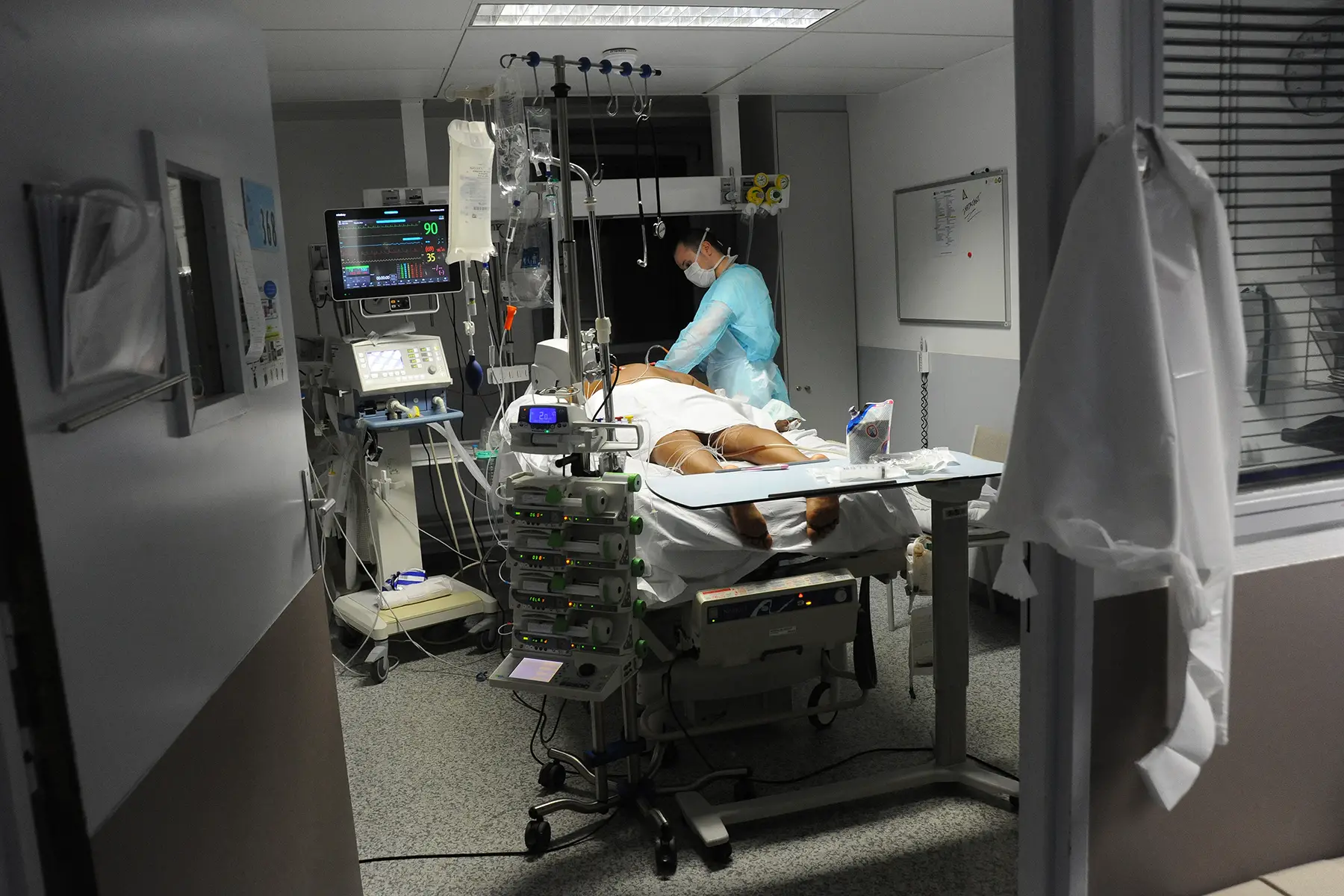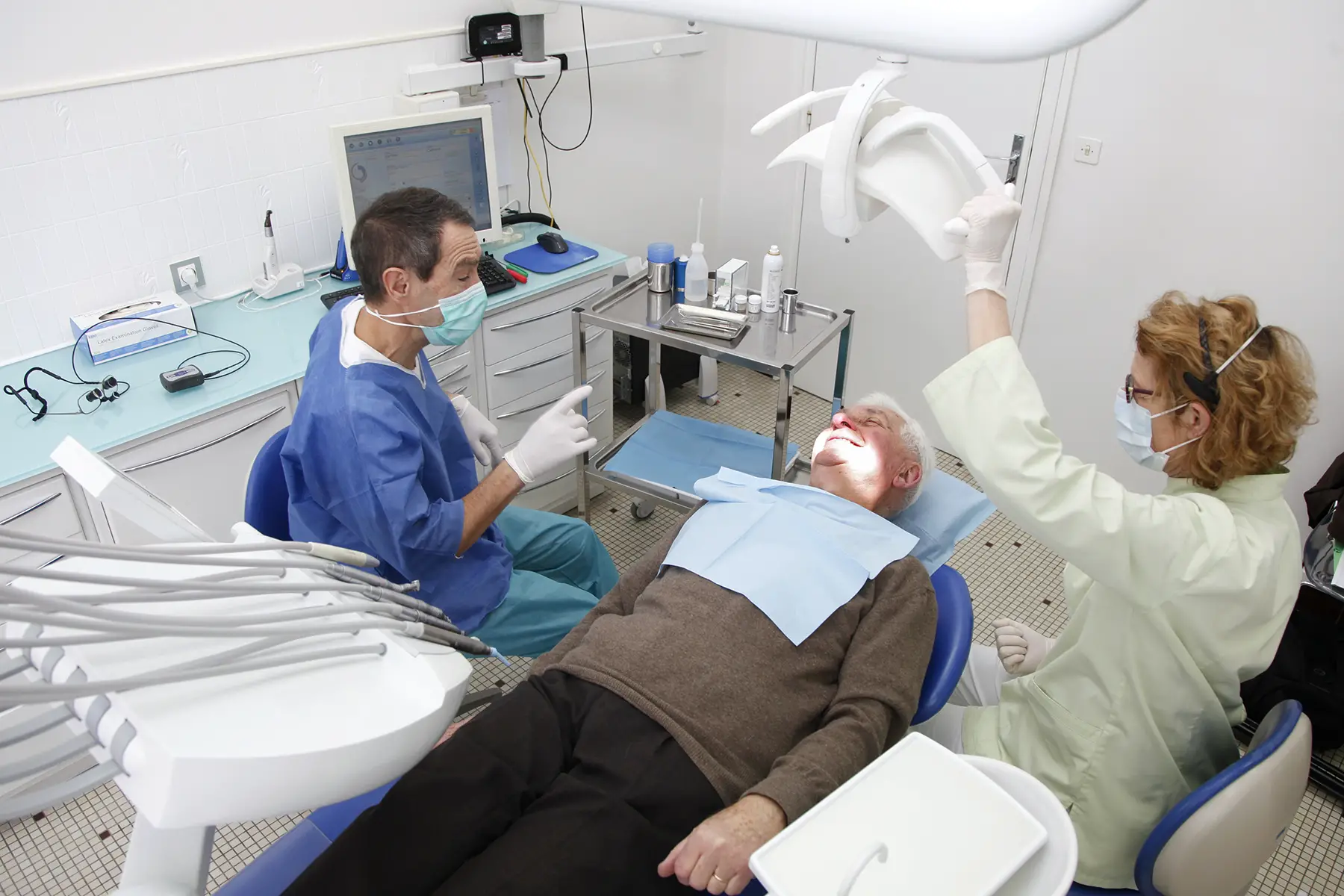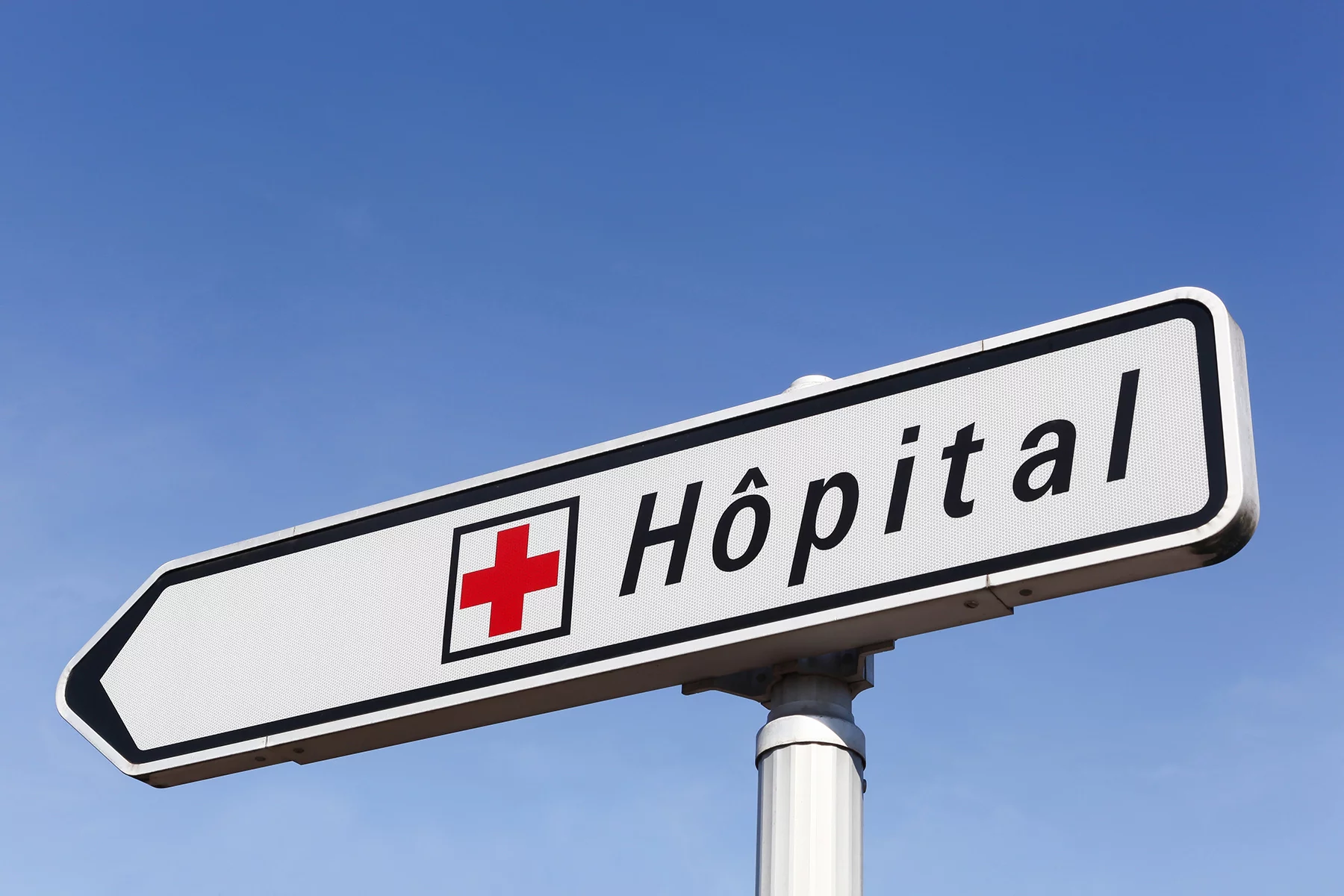France is known across the world for offering superior levels of healthcare services. This, of course, includes dental care. However, as an international resident, you must learn how to register with a dentist, make appointments, and determine the costs and insurance coverage.
Navigate all aspects of dentistry in France, including:
Cigna Global
Want access to the best private medical services in France? Speak to the healthcare professionals at Cigna Global today and find a policy that’s right for you. Take advantage of their global network of doctors, specialists, therapists and more with coverage tailor-made for you and your family. If you’re starting a new life in France, get peace of mind with Cigna Global.
The healthcare system in France
France’s universal public healthcare program is called Protection Maladie Universelle (PUMA). Nearly anyone residing in France for more than three months can register for state-funded health insurance. International students are an exception. Most students need to pay for the sécurité sociale étudiante (student social security) to cover their medical expenses in the country.

The state covers 70% of patients’ baseline costs for doctor consultations. Mutuelles (private health insurance companies) offer additional insurance to cover most of the remaining 30%. Luckily, dentistry in France comes under this healthcare umbrella.
Private insurance can also cover specialist treatment or complementary therapies not available through public healthcare. Therefore, international residents will need to take out private health insurance during their first three months in the country if not covered by the European Health Insurance Card (EHIC) or some other form of insurance.
So, if you have lived in France for longer than three months, you can register for French state healthcare. Simply find your local office for the primary health insurance fund or Caisse Primaire Assurance Maladie (CPAM) via the Ameli website (in French).
Your employer will sign you up for French social security before you can register for healthcare. If you are self-employed, you must contact the Regime Social des Indépendants (RSI) instead.
Once you are registered, you will receive a carte Vitale used to claim reimbursement for most medical appointments.
Dental care in France
According to the OECD database, the number of dentists in France has been steadily increasing in recent years. Currently, there are well over 42,000 practicing dentists across the country. In terms of population density, this is more dentists than in the United States (US), United Kingdom (UK), or Australia, but fewer than in most other European Union (EU) countries.

In theory, your state social security covers 70% of the cost of most dental treatment, while additional private health insurance can cover the remaining 30%. However, dentists set their rates high above the state-recommended tariffs for most treatments, resulting in many avoiding dental care as they cannot afford the out-of-pocket costs.
A 2015 De Gruyter study shows that dentistry in France reflects social inequalities despite state subsidies. The lower-earning segment of the population is more likely to renounce dental treatment for financial reasons. However, this rate of withdrawal from treatment has been declining.
State dental care in France
Most dentists work in the public healthcare system. As of 2007, the French Health Ministry (Ministère de la Santé et de la Prévention) designated oral health as one of its national priorities. This includes mandatory and free dental visits for children aged six, nine, 12, 15, and 18. Dentists also recommend yearly checkups, but you must remember to book the appointments.
Any resident with French social security can access highly-subsidized dental care through their carte Vitale. The government sets official tariffs for basic dental treatments and healthcare in France. The patient pays the dentist up front, but 70% of the official rate is reimbursed by the state healthcare system.
These include routine dental procedures, such as gum disease treatments, extractions, and fillings. In 2021, this state coverage expanded to include dental prostheses, such as bridges, crowns, and movable prosthetics. Your voluntary top-up insurance (mutuelle) will cover all or some of the remaining costs. Of course, it depends on your coverage.
Private dental care in France
The healthcare system categorizes dentists as contracted or non-contracted (conventionnés or non-conventionné). The conventionnés group splits into two sections: Secteur 1 and Secteur 2. Non-conventionné falls under Secteur 3.

Dentists that are conventionnés Secteur 1 apply state-set tariffs for all standard treatments. These will be the cheapest dentists, with 70% of their fee covered by social security. Dentists known as conventionnés Secteur 2 rates are higher but still meet state regulations.
Finally, a non-conventionné Secteur 3 dentist is the most expensive as their rates are not regulated. State security will only reimburse a small part of their fees, so you will need good dental insurance or deep pockets to cover the rest.
Dental insurance
Typically, you will take out optional insurance for dentistry in France to pay all or part of the remaining 30% of the bill not covered by social security. Most private insurance (mutuelle) providers also reimburse non-routine dental care services. Some reputable insurance providers in France offering different packages include:
However, your private dental insurance may not pay for every procedure. For example, most insurance packages only partially (if at all) cover treatments, such as scaling and root planning, elimination of dental calculus, and surgical implantation, according to an oral health study (2022).
In addition, some dental insurance packages will be capped (mutuelle dentaire avec plafond), meaning the amount it will annually reimburse is limited. Your insurance may also specify how many teeth you can treat or how many crowns you can replace in a year.
If you anticipate a significant amount of dental work, you can opt for a mutuelle dentaire sans plafond, which is unlimited. Of course, these monthly premiums will be more expensive.
If your private health insurance does not cover all your dentistry needs, you could also subscribe to supplementary health insurance (surcomplémentaire de santé). This additional plan represents a third layer of coverage. However, be sure to read the fine print, as some of these plans require a subscription of 12 months before you can make any claims.
You may also have specific insurance options for procedures such as orthodontics or dental implants, covering up to €2000 per implant.
To compare health insurance options and find one that best suits your dentistry needs, you can use an online comparison tool like LeLynx or LesFurets.
Finding a dentist
Like any health professional in France, you can find a dentist through the Doctolib website. Search for chirurgien-dentiste and include your postcode. If you need a pediatric dental practitioner, search under dentiste pédiatrique.
Choose a dentist with care. Make sure you get a few estimates for the dental work you need, as their tariffs for more complex treatments can vary considerably. Nevertheless, quality care is always the most important factor, so don’t merely opt for the cheapest dentist you can find. Ask friends, colleagues, or neighbors for recommendations and their experience with specific dental clinics in France.
Finding an English-speaking dentist in France
If you do not feel confident discussing your dental needs in French, the Doctolib site allows you to search their directories by language spoken. You can also find a handy list of English-speaking dentists on the Australian Embassy website. Finally, you can join social media groups like Americans in France or Expatriates in Paris and Suburbs to ask for personal recommendations.
Visiting a dentist in France
You can book an appointment with a dentist through the Doctolib site or by calling a dentist’s office directly. Be aware that the waiting lists for first appointments are long (months) if it is not urgent or an emergency. You may need to contact several dentists before finding one with more availability. It’s also worth searching on the outskirts of major urban areas with a lower population density.

When you arrive at your appointment, you will present your carte Vitale and any private insurance card if you have them. Without private cover, you must pay the full cost of the consultation or treatment and claim a percentage back from your state insurance. Note that dentists may also apply a penalty fee for any missed appointments.
After an initial consultation, a dentist has to give you a written estimate for the dental work that must include:
- A precise and detailed description of the treatment envisaged and/or the materials used
- The total cost for this treatment
- The amount reimbursed by the state health insurance
You can then consult your private dental insurance to see how much of the remaining cost they will cover and how much you will have to pay out-of-pocket.
The cost of dental care in France
French social security regulates the cost of routine and basic treatments such as scaling, treating cavities, or root canals. However, since they are independent professionals, even Secteur 1 dentists can set their prices for more complex procedures. Prosthetic care, such as crowns, implants, or dentures, can be expensive. This is partly because the dentist often contracts other dental technicians to make customized prostheses or implants.
For a standard consultation, a Secteur 1 dentist charges €23, according to regulations. Social security reimburses €16.10, and you or your health insurance must cover the rest. Secteur 2 or 3 dentists will often charge considerably more. Yet state health insurance only reimburses the same amount, leaving you to foot the rest of the bill.
Here is an idea of the minimum state-set tariffs for some routine dental procedures (paid on top of a consultation), all of which social security reimburses at a rate of 70%:
- Scaling: €29
- Treating cavities: €17–29 depending on the type of cavity
- Revitalizing an incisor or canine tooth: €34
- Extracting a baby tooth: €17
- Extracting an adult tooth: €33
Dentists will set their own prices for prosthetics, which vary greatly from one practitioner to the next. For instance, while the state-set tariff for a ceramic crown is €120, most practitioners’ fees are much higher.
Social security partially covers these fees up to a specific amount, for example:
- Dental crown: €184
- Denture (up to three teeth): €193
- Full denture (14 teeth): €510
- Three-piece bridge: €525
Low-cost dental care in France
There are some free and low-cost dentistry options in France. However, these centers often rely on inexperienced students, can be overcrowded, and are generally aimed at the most vulnerable population (i.e., no or very low income or with no legal status). These include:
- Dentistry faculties in university hospitals (CHU): fifth-year students treat patients under the supervision of a professor
- Free dental clinics (dispensaire dentaire): dentists do pro bono work or dental associations pay them
- M’T Dents: a state-run program that provides free dental exams for pregnant women and children
- Dentists’ associations: provide free or low-cost dental care. While some are open to all, some are only accessible to patients who claim benefits or who are supported by the social welfare system. These include:
- Le bus social dentaire (a mobile clinic in the Paris region)
- l’APAD, Solident (Grenoble area)
- Implant pour tous (for dental implants at a reduced cost)
Children’s dental care in France
Although the public healthcare system largely subsidizes dentistry in France, allowing all children in France access to high-quality health services, dental care in childhood also reflects social inequalities. According to a 2016 INSEE report (in French, p.188), preschool children from higher-earning households present with about three times fewer dental cavities than children from lower-income families, possibly due to better oral hygiene, including regular dentist visits.
To get your child’s dental consultations covered by state security, they just need to be added to your carte vitale when you register for healthcare via your local CPAM (Caisse Primaire Assurance Maladie) office.
Although social security entirely reimburses certain consultations (notably check-ups every 3 years), other procedures can be more costly. Some examples of state-set tariffs (reimbursed at a rate of 70%) for children’s dental care include:
- Treating cavities: €19-34 depending on the type of cavity
- Devitalization: incisor or canine tooth – €38, premolar – €58, molar – €94

When it comes to orthodontics, you must get approval for reimbursement in advance from the state health insurance (Assurance Maladie), which will usually subsidize 70-100% of treatment for children under 16. Again, bear in mind that state insurance only applies to state-set tariffs, and most practitioners will apply rates above this baseline, so be sure to get a quote from multiple providers.
Emergency dental care in France
If you have a dental emergency in France, you can either call up your local dentist and see if they have any emergency slots open on the day, or you can go to a nearby university hospital (CHU) with a dental faculty.
For all emergency services, standard cost-sharing applies. This means that state insurance generally covers 70%, while the patient covers the rest, often through their private health insurance. Such emergency services include emergency consultations, X-rays, tooth extraction, and root canal treatment.
Useful resources
- Ameli – website with healthcare information and advice. There is also an English-speaking advice line for information about French healthcare insurance: call 3646 from within France; +33 811 70 36 46 from abroad
- Service Public – official government website with a section on health and French dentistry
- National Federation of Health Centers (Federation Nationale des Centres de Sante, FNCS) – find a local dental care center near you
- Aide Sociale – information about social support in France, including free and low-cost dental care.








